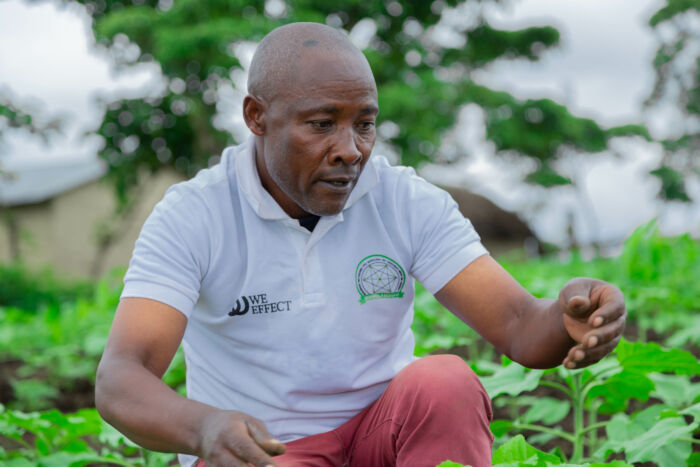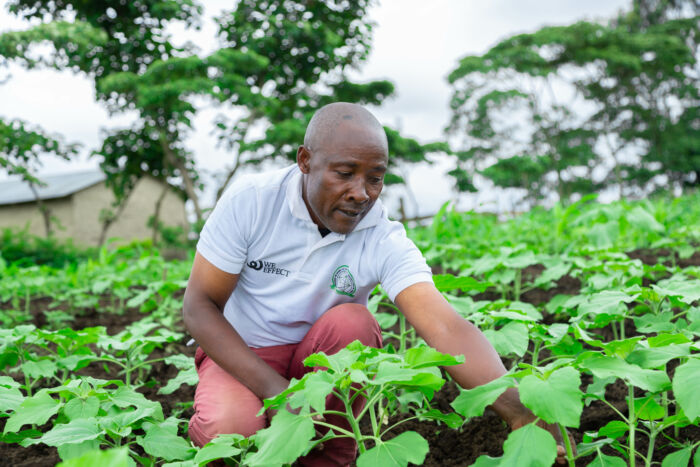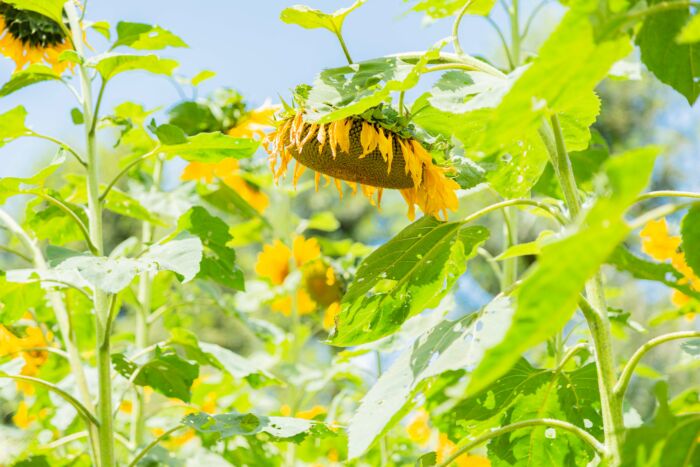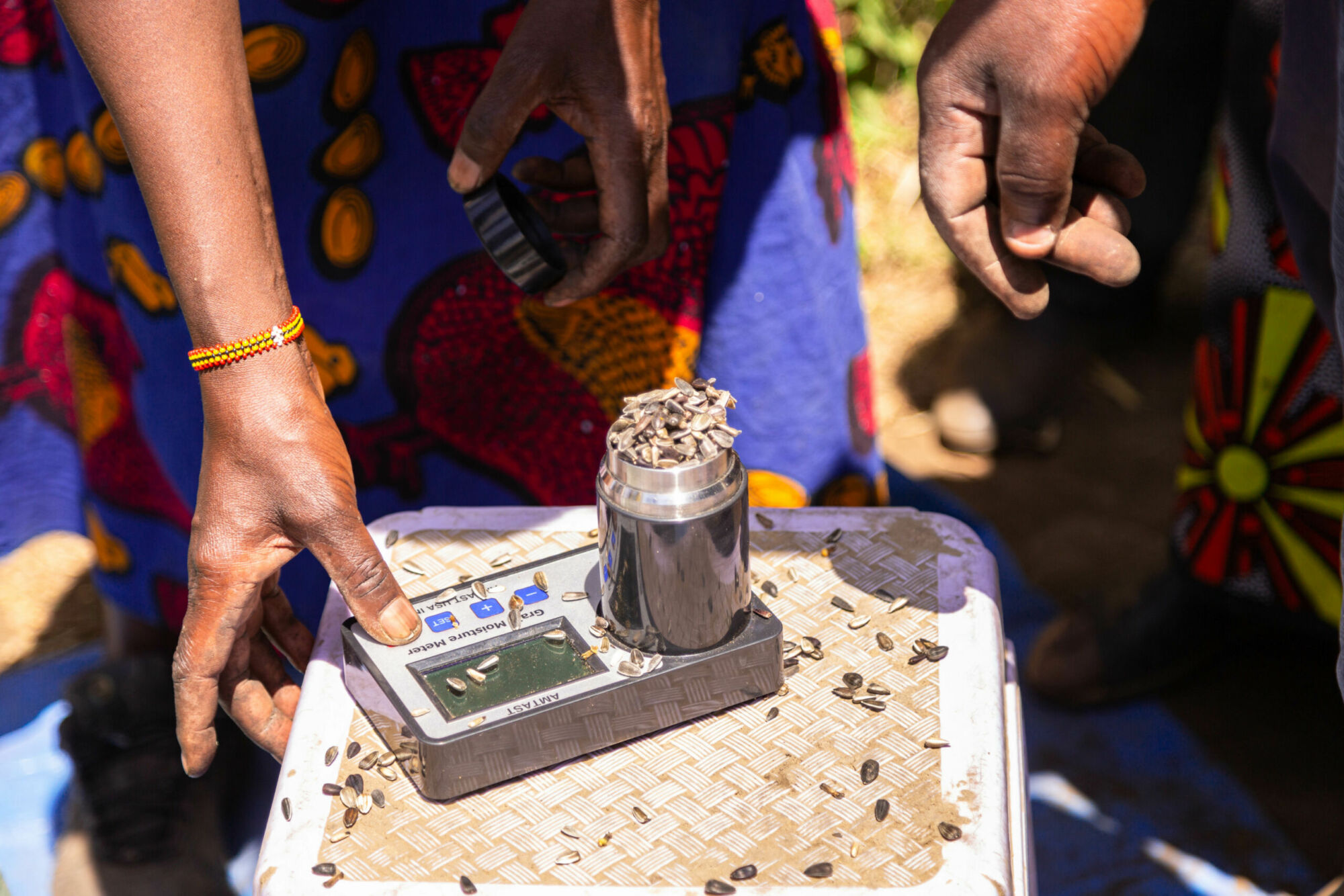At age 50, Mr. Daniel Saitabao, a father of six, shares his life and a deep bond with his beloved wife in a journey that has woven an inspiring tale of patience and unwavering commitment to sunflower farming.

Mr. Saitabao, in his modest existence, calls a one-acre farm home. This small plot has been the canvas for his agricultural endeavors, coexisting harmoniously with his livestock, maize, and bean crops. While Mr. Saitabao shares similarities with many farmers in the region, who have traditionally relied on local techniques to cultivate maize and beans, the returns from these crops have often fallen short of expectations.
Amidst this backdrop of traditional farming, a transformative initiative emerged: the Farmers Organization Research-Led Innovation (FORI), aimed at unlocking the potential of sunflower cultivation. In the heart of a tobacco-dominated region, where most farmers steer their efforts towards this cash crop, the introduction of sunflower farming struck a harmonious yet surprising chord. This new melody brought optimism and curiosity.
As a member of Mtandao wa Vikundi vya Wakulima Mkoa wa Arusha (MVIWAARUSHA), Mr. Saitabao embraced the opportunity to participate in the research and promotion of sunflower farming, standing alongside ten pioneering farmers.

The fruits of Mr. Saitabao’s labor astonished his community when he reaped a bountiful harvest of 120 kilograms of sunflowers in a small research demonstration plot. Subsequent processing yielded a gratifying 20 liters of oil, a tangible testament to the potential of sunflower farming.
This triumph ignited a renewed spirit among his neighbours, inspiring them to aim high in the coming seasons.
The collaborative efforts of local network leaders, lead farmer researchers, and village governments have facilitated the entire process. This collaboration ensures farmers are actively involved and satisfied with the new processing facilities. All three installed processing units have housing facilities constructed by the farmers to shelter their respective processing machines. Local farmer networks have substantially contributed to these structures, securing land, building materials, and providing labor.
Mr. Saitabao now stands as a beacon of hope among the farmers of Losikito village, a living testament to the blessings of sunflower farming.
I am elated to have achieved this,” he shared. “I have come to realize that producing one’s cooking oil is not only possible but also a source of immense pride. Today, I can claim ownership of the oil I cultivate and process, and this is nothing short of amazing.
In addition to his gratitude, Mr. Saitabao acknowledges the impact of the training provided by We Effect, which has sparked a transformation in the mindset of many. He proudly explains, ” My wife largely manages the operations of this farm, thanks to the inclusivity training on gender transformative approach.”

Saitabao’s success story epitomizes the ultimate achievement of the FORI project in Losikito village, and it promises to endure even after the project concludes. The residents of Losikito village, inspired by Saitabao’s journey, are poised to redefine their approach to sunflower farming and embrace the commercial potential of this crop, thereby ushering in a new era of agricultural prosperity.
Edited by Catherine Waking’a
